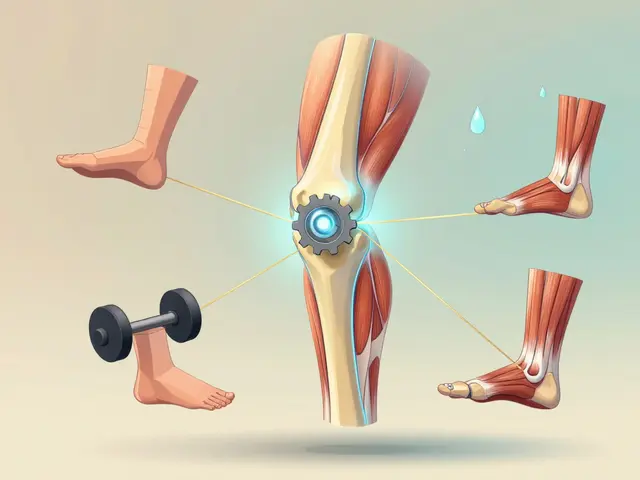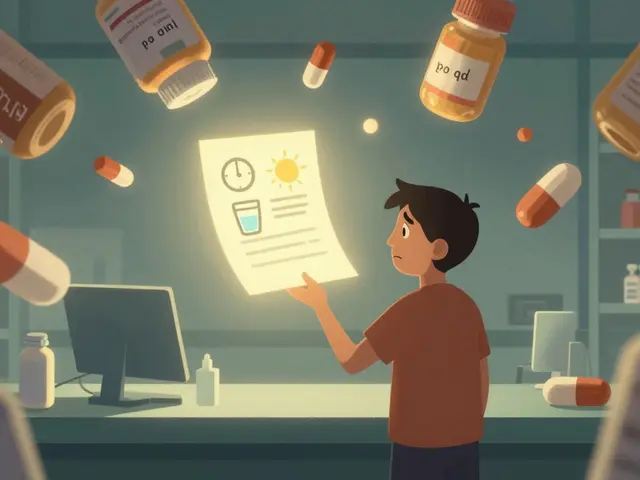Hypoparathyroidism: How to Spot It and What to Do First
Low parathyroid hormone (PTH) means your body can’t keep calcium where it belongs. That sounds small, but it causes muscle cramps, numbness around the mouth, tingling fingers, and in bad cases, seizures. If you’ve had neck surgery, a thyroid operation, or autoimmune problems, this is a condition you need to watch for.
So how do you know it’s hypoparathyroidism and not something else? The core sign is low blood calcium paired with low or inappropriately normal PTH. Phosphate tends to be high. Your doctor will check total and ionized calcium, PTH, phosphate, magnesium, vitamin D, and often a 24‑hour urine calcium to see how much you’re losing. If magnesium is low, fix that first—low magnesium can both cause and worsen low calcium.
Emergency signs and first aid
If you feel severe muscle spasms, persistent tingling, confusion, or fainting, get to the ER. Acute, symptomatic low calcium often needs intravenous calcium (calcium gluconate) under monitoring. Don’t try to treat serious low calcium at home. For milder symptoms, an urgent call to your doctor is wise—sometimes increasing oral calcium and active vitamin D helps quickly.
Daily treatment and long-term care
Most people with chronic hypoparathyroidism take oral calcium supplements and an active form of vitamin D (like calcitriol). Those two together raise blood calcium and reduce symptoms. Your doctor may also suggest calcium citrate if you take stomach acid blockers, because it’s absorbed better without acid.
Some patients benefit from PTH replacement therapy (recombinant PTH). This mimics the body’s own hormone and can reduce the need for massive calcium doses, but it’s not for everyone and availability or cost can be an issue. Talk this over with an endocrinologist.
To protect your kidneys, doctors monitor urine calcium regularly. High urine calcium can cause stones or kidney damage. If your urine calcium is high, a thiazide diuretic may be added to lower urinary loss. Regular kidney imaging and blood tests keep an eye on any long-term issues.
Bone health in hypoparathyroidism is unusual: bone density can be higher, but quality may differ. Your specialist will decide if you need bone scans and how often to repeat them.
Simple lifestyle tips help: keep a medication list, wear a medical ID if your calcium has been unstable, and avoid overuse of diuretics that can shift calcium quickly (loops like furosemide lower calcium). Keep hydrated and follow a balanced diet—no special “high-calcium” fad diets without talking to your doctor.
Want help finding reliable info or questions to ask your doctor? On PowPills we cover tests, medicines, and how to spot red flags. If you suspect hypoparathyroidism, see an endocrinologist—early diagnosis and tailored treatment make living with this condition much safer and simpler.
How Alfacalcidol Helps in the Management of Hypoparathyroidism
As someone who has researched hypoparathyroidism, I've discovered the significant role Alfacalcidol plays in managing this condition. Alfacalcidol, a vitamin D analogue, helps increase calcium levels in the blood, which are usually low in those with hypoparathyroidism. By stimulating intestinal absorption of calcium and phosphate, Alfacalcidol aids in maintaining a proper balance of these minerals. Additionally, it promotes bone formation and reduces the risk of bone-related complications. Overall, Alfacalcidol has proven to be an effective and valuable treatment for individuals suffering from hypoparathyroidism.



